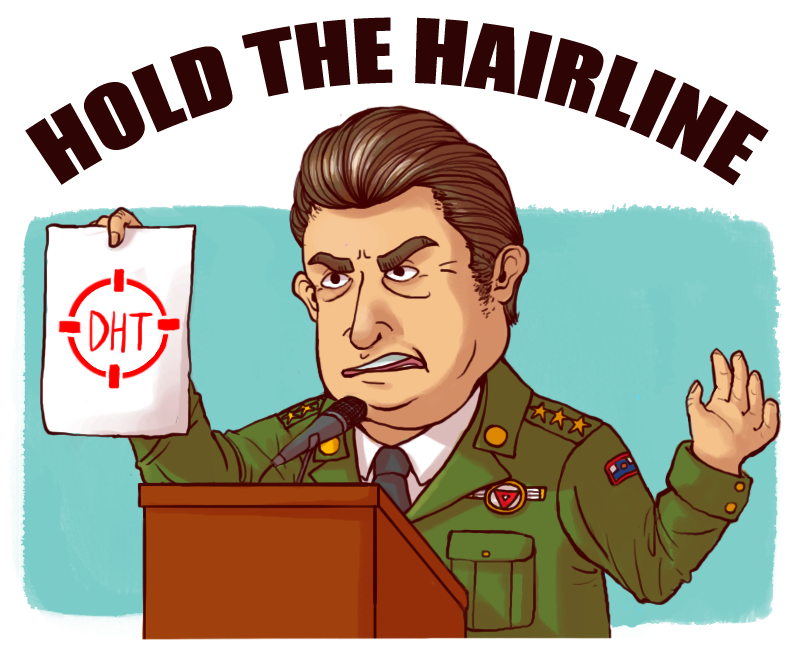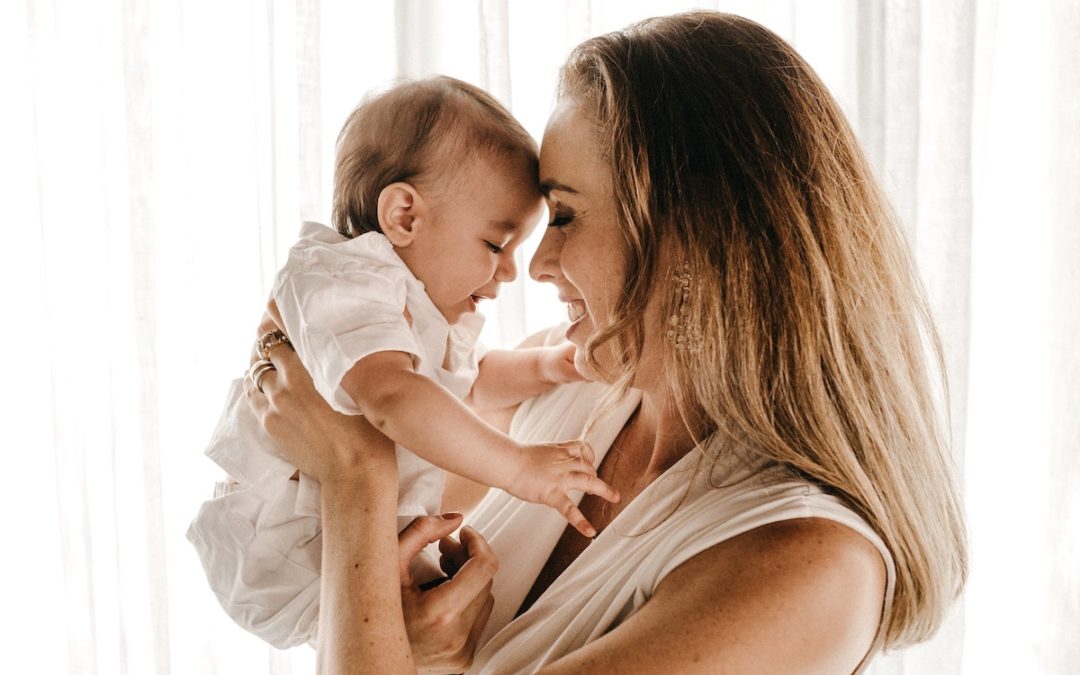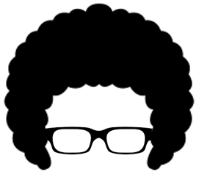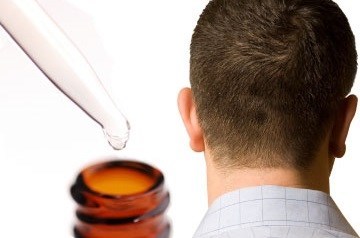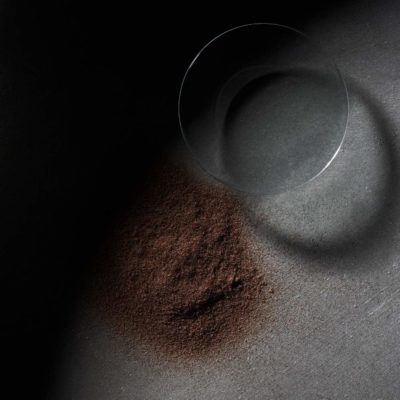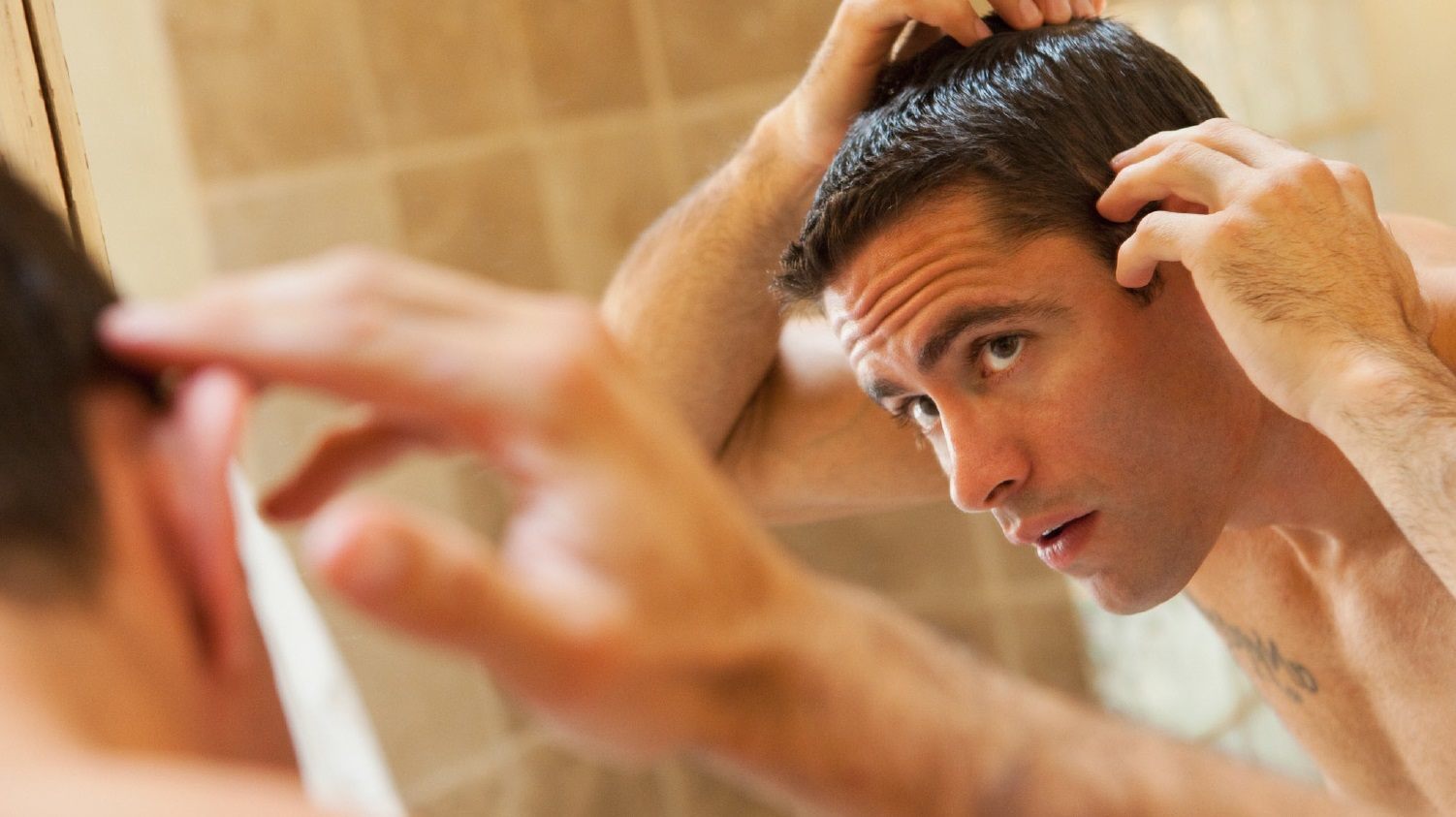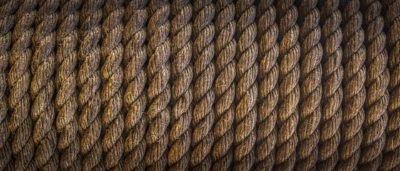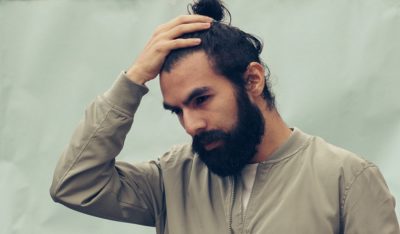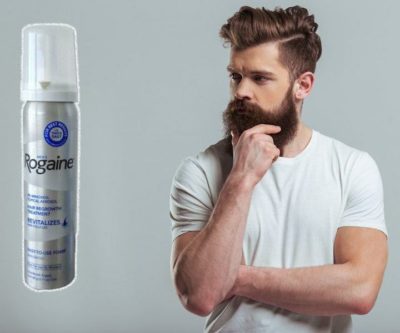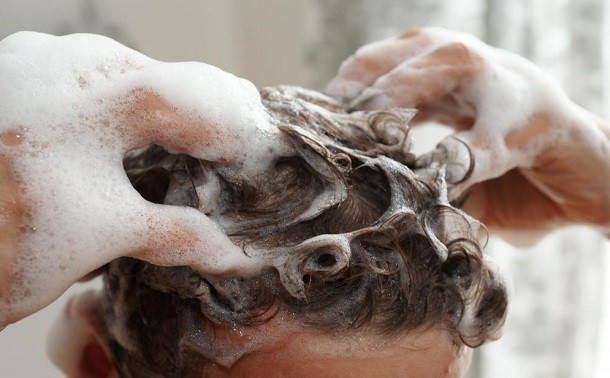Last Updated on August 11, 2020 by Hold the Hairline Team
Postpartum hair loss isn’t a myth. It’s a real and problematic thing.
Pregnancy changes your body in more ways than you can even imagine before you conceive. And while these changes are a sign of the beautiful process taking place, they can be incredibly difficult to deal with.
Many of these changes leave new moms struggling with their body image. More pronounced curves, stretch marks, and even some weight gain are all changes that most women expect. If you need some awesome postpartum products you can check out Return of the Stork for some recommendations.
But there are other changes that don’t get mentioned as often that can leave new parents struggling with their self-confidence. Hair loss is one of those changes. Keep reading to learn everything you need to know about postpartum hair loss.
It’s More Common than You Might Think
Like so many side effects that pregnant women and new moms deal with, hair loss is often overlooked and rarely mentioned.
The media, and perhaps the general public as well, would prefer to think of pregnancy and motherhood as a beautiful, flawless process. They want to hear about the glowing skin, soft and shiny hair, or round, stretch-mark-free belly.
This means that other side effects, like swollen ankles, acne, or hair loss, are often swept under the rug. But the reality is that many of are far more common than one might think.
The Stats Behind Postpartum Hair Loss
Unfortunately, the exact statistics on hair loss in new moms remains unclear. After all, hair loss can be attributed to a number of different conditions that could skew those numbers. Also, some new mothers only experience mild cases of hair loss and may not seek medical care or even report the condition to their doctor.
However, some experts believe that as much as 40 to 50 percent of American moms experience postpartum hair loss.
Some celebrity moms have come forward to share their struggles with the condition. Jessie James Decker came forward last year to ask other moms for advice on dealing with hair loss as a new parent.
If you’re experiencing hair loss yourself, while also adapting to caring for your newborn, it can be a lonely feeling. Knowing that so many other mothers out there are experiencing the same thing can help.
Hormones are to Blame
When you’re pregnant, your body begins to produce higher levels of certain hormones.
Among the hormones that see a spike are estrogen, progesterone, oxytocin, and prolactin. One of the first hormones to begin to rise is human chorionic gonadotropin or hCG.
For parents who have long been hoping to see those pink lines on a pregnancy test, that spike in hCG levels will be very welcome. After all, pregnancy tests are designed to test for raised hCG levels, indicating that a woman is expecting.
These and other hormones, as well as an increase in your blood volume, help your baby grow and develop.
But immediately after your baby is born, you no longer need those elevated hormones. Your body stops producing as much, and your levels drop. The levels of some of your hormones return to your pre-pregnancy normal in as little as 24 hours after your baby is born.
Some of your hormones, including prolactin, remain elevated while you’re breastfeeding, then drop.
How Those Hormone Changes Cause Hair Loss
These hormone changes can cause a number of side effects.
Some are positive side effects, like glowing skin. Others, like breakouts on your face, aren’t so great.
Increased estrogen levels, while you’re pregnant, are actually great for your hair. When you’re not pregnant, women lose a little bit of hair every day. This is not only normal but also healthy.

When your estrogen levels start to rise during pregnancy, you stop losing this small amount of hair daily. This is one reason many pregnant women experience thicker, fuller hair during their pregnancy.
But when those estrogen levels drop after your baby is born, your hair may suddenly begin catching up. All of that hair that you didn’t lose during your pregnancy begins to fall out.
So when does postpartum hair loss start?
What to Expect
Depending on the individual woman, hormone levels may drop right away, or take a while to get back to normal.
When postpartum hair loss begins depends on when a new mother’s estrogen levels begin to lower, and how long it takes them to get back to normal.
Hair loss and a normal estrogen level may begin as soon as just a couple of days after your baby arrives. But other women may not start experiencing hair loss until several months after they give birth.
Hair Loss Isn’t Always Drastic
When postpartum hair loss will begin isn’t the only thing that differs from woman to woman.
How much hair a woman loss also differs.
For some women, their postpartum hair loss might not be much more than what they used to lose on a daily basis before their pregnancy. Other women will lose clumps of hair at once.
Either case can feel traumatic. Clumps of hair can leave an already emotional mother feeling even more upset and stressed out. She may feel as though she’s losing a noticeable amount of hair.
But even light hair loss can be stressful for a new mom.
Most women don’t end up actually losing much more than they would have anyways during 9 months not pregnant. But because the rate of hair loss increases, it can seem as though you’re losing much more.
Other women will lose a noticeable amount, often from the crown of her head or around her forehead where hair loss is more pronounced.
When does Postpartum Hair Loss Stop?
Whether you’re losing a lot of hair or just a small amount, you’ll likely find yourself wondering how long postpartum hair loss is going to last.
Unfortunately, that question is difficult to answer because it’s different for every woman.
Fortunately, postpartum hair loss usually lasts just a few months. Although occasionally it can last as long as a year.
After that time, most women’s hair begins to grow back right away and goes back to the strong, healthy hair she had before her pregnancy.
If you were only losing a bit more than you were before your pregnancy, you might not even notice when your hair loss goes back to normal!
Postpartum Hair Loss Treatment
Knowing the reasons behind why you’re experiencing postpartum hair loss, the fact that many other women experience it, or even how long it may last may not be enough to settle a new mother’s nerves.
Instead, what most women really want to know is how to deal with postpartum hair loss and get to stop or at the very least slow down.
Luckily, there are several ways to put a stop to your hair loss or lessen the amount of hair you’re losing while your body readjusts to life post-pregnancy.
Changing Your Hair Habits
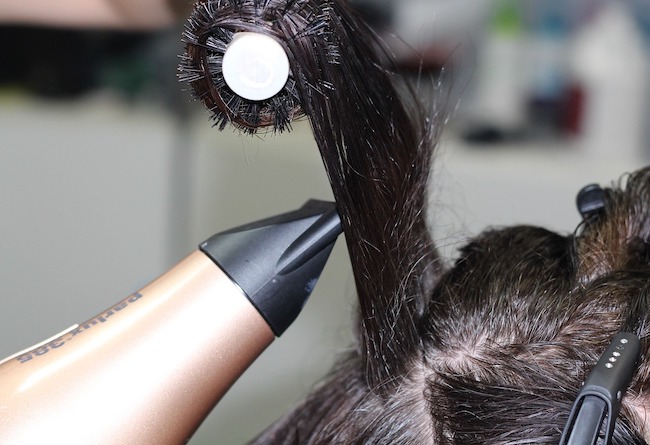
One important way to cut back on the amount of hair you’re losing requires you to rethink your hair habits.
Styling your hair with heat from a blow dryer, straightener, or electric curler can damage your hair. This can speed up hair loss and even make it worse. It can also weaken your hair, leaving your already thinning hair looking even worse.
If you think that you’re experiencing postpartum hair loss, consider dropping these habits for a while.
You might even consider brushing your hair less often and using a conditioner to break up tangles so that you won’t have to yank and tug with a brush to get them loose.
It’s also a great idea to swap your regular hair products for organic alternatives. Organic shampoos and conditioners are gentler on your locks, and also healthier to have around your baby!
Get Your Nutrients

Eating right and getting the nutrients your body needs is important before, during, and after your pregnancy. And while it helps keep your milk supply healthy while breastfeeding and helps you bounce back to your pre-pregnancy body, it may also help reduce your hair loss.
The right nutrition includes getting plenty of lean protein, vitamins from fruits and veggies or from vitamins, and enough calories to allow your body to keep up with breastfeeding and long hours caring for your newborn.
Making sure that you’re getting enough iron and vitamin C can also help reduce your postpartum hair loss.
If hair loss persists for weeks or even months after you give birth, you might also want to add a vitamin to your routine that’s designed to promote healthy hair growth.
Dealing with Postpartum Hair Loss
Dealing with postpartum hair loss can be stressful, especially for new moms. With hormones already raging and sleep difficult to come by, losing handfuls of hair each day can put women in a panic, leaving them feeling vulnerable and nervous.
But the reality is that postpartum hair loss is perfectly natural and more common than you might think. And with a few simple changes to your routine, you can cut down on the amount of hair you’re losing.
If hair loss persists more than a year after you’ve given birth, an underlying cause, rather than changing hormone levels, is likely to blame. This also means that you’ll need to take action to stop the hair loss, as it’s unlikely to stop on its own.
If you’re still dealing with hair loss and your baby has already celebrated his or her first birthday, check out this article next to learn 10 of the top hair loss treatments you need to try.
